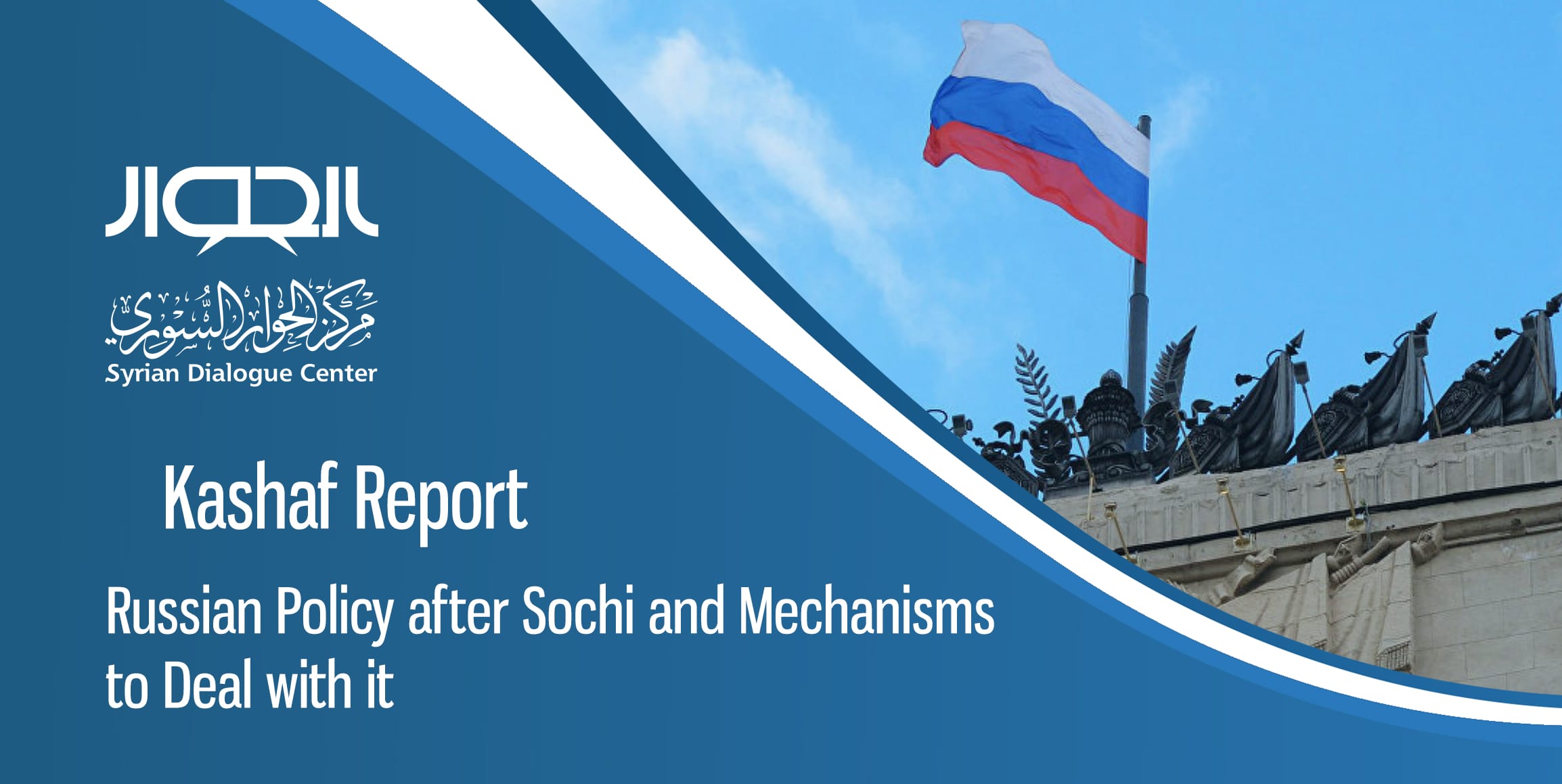
Kashaf report: Russian Policy after Sochi and Mechanisms to Deal with it
With the onset of the Syrian revolution in March 2011, Russia placed the essential determinants of its policy towards the situation in Syria, which as a whole, constituted unlimited support for the Syrian regime at the various political and military levels. On the political level, Russia defended Syria in international forums, as evidenced by its use of the veto right eleven times to stop condemnation of the regime, despite the crimes and massacres it had committed. On the military level, it supplied various types of weapons to the regime, and when it and its ally Iran had failed in confronting the revolutionary powers, it intervened with its full military weight to defend the regime from its impending fall.
The revolutionary forces and the military and political opposition exerted various efforts and on separate occasions to influence the Russian approach to Syria. The revolutionary and opposition forces positions in dealing with the Russians and the ways of reaching understanding with them have varied, from a full boycott to extending a hand of cooperation and trying to build bridges and gain confidence. Despite the wide gap between positions, there is consensus that all of the ways that were resorted to did not find any benefit in light of Moscow’s insistence on unwavering from Bashar al-Assad’s continuation and linking the political process to his staying in power.
The recent Sochi conference came to represent an episode of Russian policy, which it tried through which to establish its view of a “political solution” in Syria, which could be summarized as protecting the regime and its life by executing some “surface reforms,” which touch neither its essence nor its security and military structure, which Moscow has conditioned its strategic interests on.
In light of the developments which followed the Sochi conference, with the intent of dialogue over the re-evaluation of Russian policy towards Syria, establishing its points of strength and weakness, and thus reaching important conclusions regarding management of the next phase, the Syrian Dialogue Center established, in cooperation with the Strategic Observatory, the Omran Center for Strategic Studies, a seminar with the title: Challenges of Russian Policy after Sochi and Mechanisms to Deal with it.” It was held on Monday, Jumada al-Awal 26, 1439/February 12, 2018.
The seminar consisted of two sessions. The first was a demonstration of a research paper presented from the Strategic Observatory by one of its experts, carrying the title “Challenges of Russian Policy after Sochi and Mechanisms to Deal with it.” It was followed by the comments of an expert from the Omran Center for Strategic Studies which discussed the characteristics of Russian policy and presented a number of recommendations. As for the second session, it began with participant interventions, whose views varied because of the breadth of the subject and its complex implication. The second session ended with the experts’ responses to the interventions and the seminar was attended by Syrian academicians, writers and researchers, as well as representatives from the political and military factions.
This thematic report was prepared by following the “Chatham House” rule, without being bound to the chronological order of presentations and interventions. Rather, the thematic division of the report was organized with an intent of arranging the ideas in a smooth and objective way that would help the reader, as much as possible, to understand the content.
The report contains two topics. The first is a demonstration of the papers presented by the Strategic Observatory and the Omran Center for Strategic Studies, whereas the second topics discusses the interventions and comments made by the seminar’s participants as well as the research centers’ experts’ comments to them.
To download the report:
Russian Policy after Sochi and Mechanisms to Deal with it
مؤسسة بحثية سورية تسعى إلى الإسهام في بناء الرؤى والمعارف بما يساعد السوريين على إنضاج حلول عملية لمواجهة التحديات الوطنية المشتركة وتحقيق التنمية المستدامة





